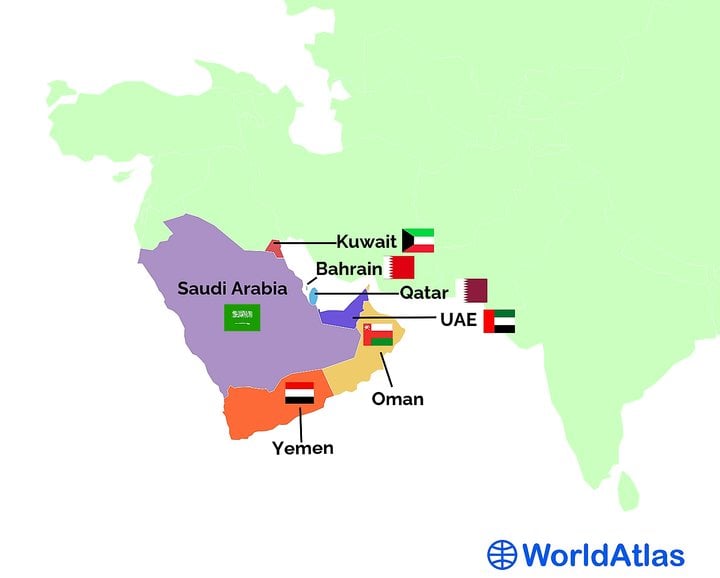The Great Theft of the Arab Identity
Take Egypt, for example. Its official name is the Arab Republic of Egypt, a product of 20th-century pan-Arab ideology ironically, created by two Arabized Syrians, one Christian and one Muslim. But Egypt itself is not an Arabian land. Egyptians shouldn’t get to represent Arabs. Like many other arabized regions, Egypt was only briefly colonized by Arabs, just as it was by numerous other empires.
Think of it this way: Mexicans speak Spanish because of colonization, but they have their own history, traditions, civilizations, and ethnic makeup completely distinct from Spaniards. Spain doesn’t let Mexicans represent it. Similarly, most Lebanese people speak French due to colonial influence, but nobody calls them French or let them represent France. And this logic applies in countless other cases 😅
Yet somehow, the Arabian identity keeps getting stolen and misrepresented. Arabized peoples vastly outnumber actual Arabians, which means they often overshadow us, and represent us whether positively or negatively. And there’s really no excuse for this. The Arab empires that once ruled them are long long gone. Languages like Coptic and Aramaic still exist and spoken and could be taught, so there’s no reason for this. Speaking Arabic as your national language is fine, but claiming the Arabian identity is definitely not.
Ask most people to name Arabic foods, and they immediately think of foods like falafel. But falafel originated in Egypt, created by Copts long before the Arab conquest, so it has nothing to do with us Arabs. Meanwhile, dishes like thareed or jareesh which are actually authentically Arabian are unknown. Hummus and falafel are actually as new to Saudi Arabia as they are to Europe, introduced mainly in the 1900s through globalization and urbanization.
What I’m saying is simple…..Arabs are an ethnic group with a distinct culture, DNA, and identity, and this identity is unfortunately being overshadowed and misrepresented by the Arabized . True Arabians know one another through tribal ancestry and customs. Distinguishing an Arabized person from an Arabian is mostly easy, but many Arabized people particularly influenced by the Ba’ath movement in the 1970s react negatively when I point simple facts out ….
This is the Arabian Peninsula the only region and people that can truly represent the Arabs:
There are Arabs elsewhere, especially in parts like southern Jordan, but these tend to be pockets.
I’m not saying this out of arrogance and I have respect for these other lands and their histories . But As a Saudi Arabian and also deeply rooted in the Arabian peninsula from an Arabian tribe, I am simply tired of seeing my culture and identity misrepresented all the time.
Think of it this way: Mexicans speak Spanish because of colonization, but they have their own history, traditions, civilizations, and ethnic makeup completely distinct from Spaniards. Spain doesn’t let Mexicans represent it. Similarly, most Lebanese people speak French due to colonial influence, but nobody calls them French or let them represent France. And this logic applies in countless other cases 😅
Yet somehow, the Arabian identity keeps getting stolen and misrepresented. Arabized peoples vastly outnumber actual Arabians, which means they often overshadow us, and represent us whether positively or negatively. And there’s really no excuse for this. The Arab empires that once ruled them are long long gone. Languages like Coptic and Aramaic still exist and spoken and could be taught, so there’s no reason for this. Speaking Arabic as your national language is fine, but claiming the Arabian identity is definitely not.
Ask most people to name Arabic foods, and they immediately think of foods like falafel. But falafel originated in Egypt, created by Copts long before the Arab conquest, so it has nothing to do with us Arabs. Meanwhile, dishes like thareed or jareesh which are actually authentically Arabian are unknown. Hummus and falafel are actually as new to Saudi Arabia as they are to Europe, introduced mainly in the 1900s through globalization and urbanization.
What I’m saying is simple…..Arabs are an ethnic group with a distinct culture, DNA, and identity, and this identity is unfortunately being overshadowed and misrepresented by the Arabized . True Arabians know one another through tribal ancestry and customs. Distinguishing an Arabized person from an Arabian is mostly easy, but many Arabized people particularly influenced by the Ba’ath movement in the 1970s react negatively when I point simple facts out ….
This is the Arabian Peninsula the only region and people that can truly represent the Arabs:
There are Arabs elsewhere, especially in parts like southern Jordan, but these tend to be pockets.
I’m not saying this out of arrogance and I have respect for these other lands and their histories . But As a Saudi Arabian and also deeply rooted in the Arabian peninsula from an Arabian tribe, I am simply tired of seeing my culture and identity misrepresented all the time.





